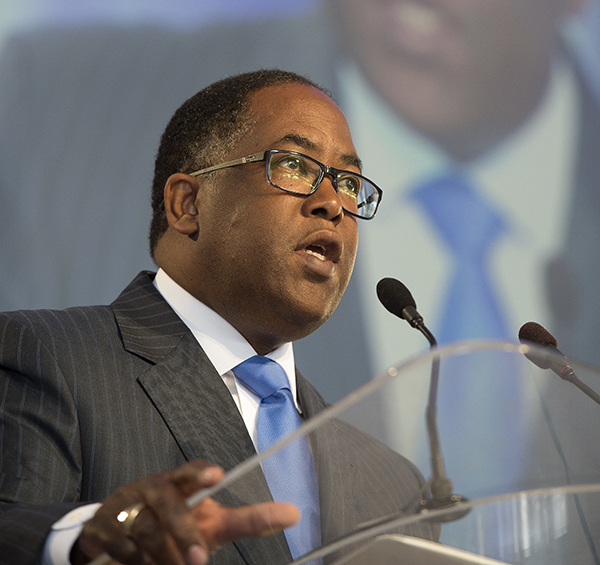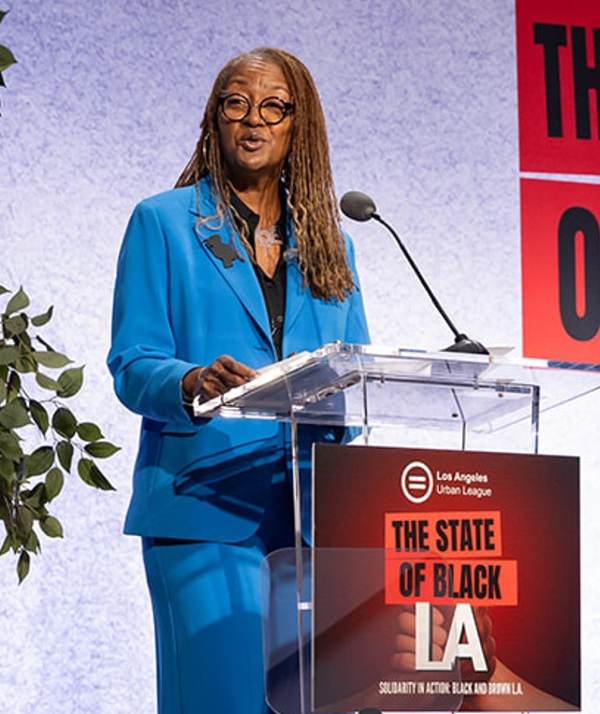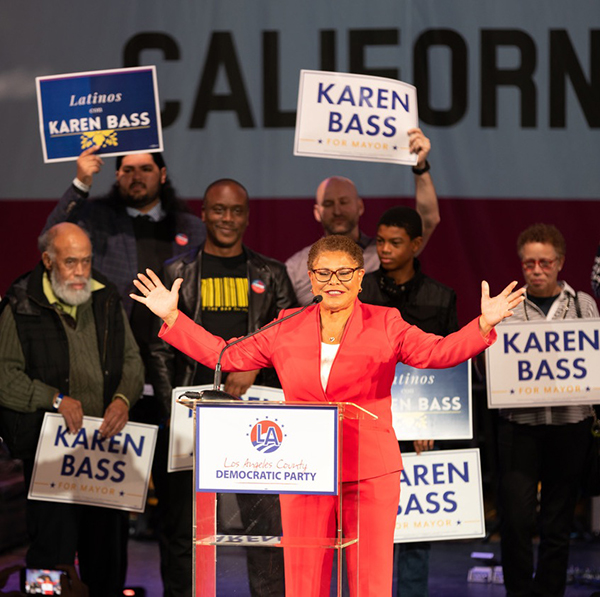Black lawyers pack Capitol hearing to back college admissions bill for slavery descendants

SACRAMENTO — Members of the California Association of Black Lawyers sat in the front row at the Senate Judiciary Committee hearing July 15 to show their support for Assembly Bill 7.
The bill would give public and private colleges and universities the option to offer admissions preferences to applicants who are descendants of enslaved people. The move is part of ongoing efforts to address the lasting impacts of slavery and systemic racism through higher education access.
Authored by Assemblyman Isaac Bryan, D-Culver City, vice chair of the California Legislative Black Caucus, the measure passed out of committee with an 11-2 vote.
Many attorneys, law students and diverse supporters of AB 7 from across the state attended the hearing at the state Capitol. Tiega Varlack, secretary for the California Association of Black Lawyers and former president of the Black Women Lawyers Association of Northern California, said the bill is essential to the organization’s work.
“We support this legislation because education is extremely important to our pipeline, which is one of the things that both organizations focus on,” Varlack told California Black Media. “We feel that, as attorneys, AB 7 doesn’t focus on race but focuses on descendants of enslaved people, a legal term of ours that gives us a better chance of surviving legal scrutiny.”
Bryan first introduced AB 7 in December 2024.
The legislation would apply to the California State University, the University of California (UC), and independent and private postsecondary educational institutions.
The bill defines “descendant of slavery” with specific criteria related to individuals subjected to American chattel slavery before 1900.
AB 7 is part of the California Legislative Black Caucus’s “Road to Repair 2025” package — a 16-bill legislative effort aimed at addressing the lasting impacts of slavery and systemic racism. The package focuses on advancing reparations and tackling ongoing racial disparities across the state.
“We have rewarded legacies of privilege, affluence and high social status with priority admission all across the country and that is still the case with many private institutions,” Bryan said. “In fact, in California, we didn’t end legacy admission until last year.
“For those that were once chattel property in this country … that is what [AB 7] is seeking to rectify and clarify in our road to repair.”
Sens. Roger Niello, R-Roseville, and Suzette Martinez-Valladares, R-Acton, were the two committee members who voted against AB 7.
According to Californians for Equal Rights Foundation, AB 7 violates Proposition 209, the California Civil Rights Initiative of 1996. The foundation is a non-partisan, nonprofit organization established in 2020 following the defeat of Proposition 16 — the measure aimed at repealing Proposition 209.
Proposition 209 was a state constitutional amendment approved by voters in 1996, according to the Legislative Analyst’s Office. The provision prohibits state and local governmental entities from discriminating against or granting preferential treatment to any individual or group based on race, sex, color, ethnicity or national origin.
“This principle was overwhelmingly reaffirmed on the November 2020 ballot when 57.2% of California voters rejected Proposition 16, which would have repealed Prop. 209,” the foundation stated in opposition through a letter to the Assembly Committee on Higher Education submitted in April.
Brandon Greene, the director of policy advocacy for the Western Center on Law and Poverty, testified before the Senate Judiciary Committee in support of AB 7 along with California Association of Black Lawyers member and Sacramento-based attorney Justin Ward.
Greene is the former director of the racial and economic justice program at the ACLU of Northern California. Greene told the committee that AB 7 takes a lineage-based approach, which refers to reparations for the descendants of enslaved people and/or free Black people in the U.S. before the end of the 19th century.
“AB 7 does this by permitting California universities to consider providing a preference in admission to an African American who is a descendant of chattel slavery,” he said. “Importantly, this bill does not force universities to do so.
“As you all consider your support for this bill, it’s vital that we understand that this bill is about lineage, not race, as the opposition has suggested.”
Established in 1977, the California Association of Black Lawyers is a statewide, nonprofit organization representing more than 6,000 African-American attorneys, judges, law professors and law students across California. It defends Black individuals against entities that deny them basic human and legal rights.
In addition, California Association of Black Lawyers members work to address and reform legal disparities affecting the Black community.
“Our mission includes increasing Black representation in the legal profession, and we know that comes with fair access to education,” Ward said.
Varlack said the AB 7 is a significant step toward educational equity and reparative justice for Black Californians, and it will do so by not conflicting with federal law.
Antonio Ray Harvey is a reporter for California Black Media.





